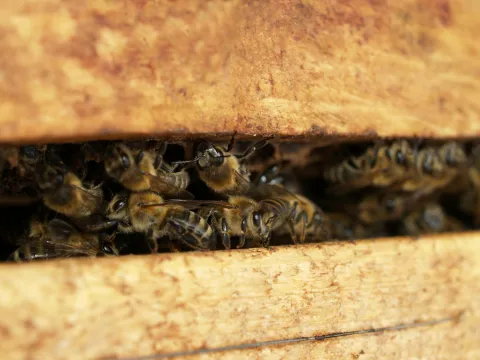Active banners: 1 Visible banners: 1
Banner ID: 25 Has content: true
Join us for the Teaching Economics through Climate – The Snowmobile Business Plan - January 13, 2026 4-5pm ET
Pollinators: Putting Food on The Table
Provided by: The Nature Conservancy |Published on: June 20, 2025
Lesson Plans
678
Synopsis
- In this lesson from Nature Lab by The Nature Conservancy, students will explore colony collapse disorder and the possible causes of bee population declines.
- Students will understand the importance of bee pollinators in helping to grow many of the things we eat and how detrimental their loss can be.

Subjects: Biology, Earth and Space Sciences
Authors: Nature Lab by The Nature Conservancy
Region: Global
Languages: English
Teaching Materials
Positives
- Students, especially young students, will love role-playing as a worker bee.
- This inquiry-based lesson encourages students to participate and see value in their contributions.
Prerequisites
- The New York Times article may have popups that block the article, prompting students to subscribe, even if they have already created a free account. Teachers may want to skip this article altogether or attempt to save the article as a PDF. Additionally, the link for the Planet Ark article is broken.
- It may benefit students to have a basic understanding of how pollination works.
Differentiation & Implementation
- After learning about the importance of bees, students can work to create and care for a pollinator garden in the schoolyard. This resource can also help guide students in planning their gardens.
- After this lesson, teachers can ask students how climate change may also impact bees. Climate connections can be made with fossil fuel-based pesticides used on crops and lawns that affect bees.
- Though a lot of the information is Maine-specific, this other unit does a really great job of demonstrating the impact of climate change on bees and, in turn, what we eat.
- To make community connections, students can interview a local beekeeper, or teachers can invite local beekeepers to sit on a panel in their classroom. Students can ask questions to help with their research, exploring place-based evidence as well.
Scientist Notes
Teaching Tips
Standards
Resource Type and Format
About the Partner Provider

The Nature Conservancy
The Nature Conservancy is a global environmental nonprofit working to create a world where people and nature can thrive. The Nature Conservancy has grown to become one of the most effective and wide-reaching environmental organizations in the world.
All resources can be used for your educational purposes with proper attribution to the content provider.



